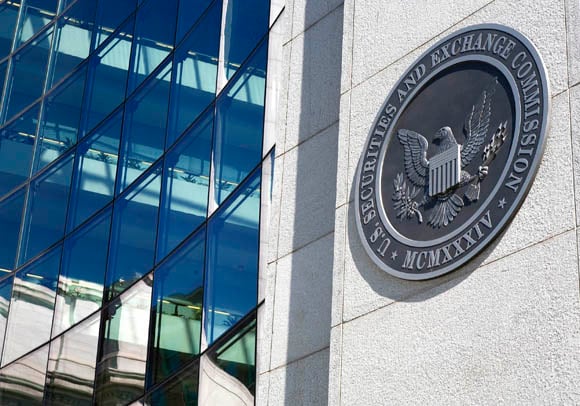SEC calendar says issue date for controversial proposal 'to be determined'; year anniversary fast approaching
Nearly a year after the Securities and Exchange Commission delivered a report to Congress recommending a regulation that would impose a universal fiduciary duty for retail investment advice, the agency has yet to propose a rule — and the road to that point soon may lengthen further.
In a letter to Congress last week, the SEC said that it will gather information for an economic analysis of the impact of a standard-of-care regulation.
“SEC staff, including [Division of Risk, Strategy and Financial Innovation] economists, are drafting a public request for information to obtain data specific to the provision of retail financial advice and the regulatory alternatives,” SEC Chairman Mary Schapiro wrote Jan. 12 to Rep. Scott Garrett, R-N.J., chairman of the House Financial Services Capital Markets Subcommittee.
“In this request, it is our hope commenters will provide information that will allow commission staff to continue to analyze the various components of the market for retail financial advice,” she wrote in the letter obtained by InvestmentNews.
The SEC intends to launch the public request next month, observers said.
After the SEC compiles the data, it will have to prepare the cost-benefit analysis.
The next steps will involve proposing a rule, gathering comments and writing a final rule — an effort that could consume all of 2012.
In its latest regulatory calendar, the SEC lists a fiduciary-duty proposal under “dates to be determined.” It designates specific time frames to issue 51 other rules and reports, many of which are required by the Dodd-Frank Act.
“If they were on the brink of proposing a rule, it would be on the calendar,” said Barbara Roper, director of investor protection at the Consumer Federation of America. “It seems increasingly unlikely that we'll get all the way to a final rule by the end of this year.”
In fact, Ms. Roper predicted that the fate of a fiduciary-duty rule may rest on the election.
“We won't get fiduciary duty finalized unless President Obama is re-elected,” she said.
If a Republican wins the White House, the SEC will flip from a 3-2 Democratic majority to a 3-2 Republican majority, putting any unfinished Dodd-Frank business in limbo.
Although it slows down the rule-making process, conducting a cost-benefit analysis is becoming central to the regulatory process.
Last week, the Labor Department issued a request for information to financial industry groups about their company members' individual retirement accounts. The agency will use the data to do a cost-benefit analysis of a rule that would expand the definition of a “fiduciary” under federal retirement law.
Mr. Garrett and his congressional GOP colleagues have been putting pressure on the SEC to do more-rigorous economic analysis to justify the hundreds of regulations emanating from the Dodd-Frank financial reform law.
The Dodd-Frank measure didn't mandate that the SEC promulgate a fiduciary-duty regulation, but it gave the commission the latitude to proceed after completing its fiduciary-duty study.
The SEC sent the report to Congress last Jan. 22.
It contained a dissent from the Republican SEC commissioners, Troy Paredes and Kathleen Casey, who did not explicitly oppose a universal-fiduciary-duty regulation but asserted that the study lacked a sufficient economic analysis to support its recommendation. Ms. Casey left the SEC last summer.
The battle over fiduciary duty intensified shortly after Dodd-Frank was enacted in July 2010. The SEC has received thousands of comments and conducted dozens of meetings with interest groups since then.
The National Association of Insurance and Financial Advisors is worried that a universal fiduciary duty would raise compliance and litigation costs for its members, and curtail their services to middle-market investors. It finds the slow walk toward a fiduciary regulation reassuring.
“It should take a long time to do this properly,” said NAIFA President Robert Miller.
“I can only take that as a sign that they understand the complexity [of the issue] they're working with. It doesn't look like they're trying to put anyone out of business,” Mr. Miller said.
The Securities Industry and Financial Markets Association supports universal fiduciary duty but has urged the SEC to create a new standard rather imposing on brokers the one contained in the law governing investment advisers. Brokers currently must meet a less stringent suitability standard when advising clients.
The SEC's measured pace on fiduciary duty is understandable, according to a SIFMA official, given the challenges of cost-benefit analysis.
“They recognize, while there are some quantitative metrics — and we have highlighted those in our early filings — there are some qualitative issues, as well,” said Kenneth Bentsen Jr., SIFMA's executive vice president for public policy and advocacy. “They're making a sincere effort to go through that.”
Although they would like to have seen the SEC get farther than it has on fiduciary duty, advocates understand that the commission invites a lawsuit if it does an insufficient cost-benefit analysis. Last summer, a federal court vacated an SEC rule on proxy access, ruling that the cost-benefit analysis was flawed.
“We are supportive of the SEC moving forward in a deliberative and appropriate process to lay the foundation for a rule,” said Marilyn Mohrman-Gillis, managing director of public policy and communications at the Certified Financial Planner Board of Standards Inc.
She argues that universal fiduciary duty will help the millions of baby boomers who are nearing retirement and must protect their nest eggs.
“These are the people who desperately need financial advice at a fiduciary standard of care,” Ms. Mohrman-Gillis said. “It is even more necessary today than when Dodd-Frank was passed.”







